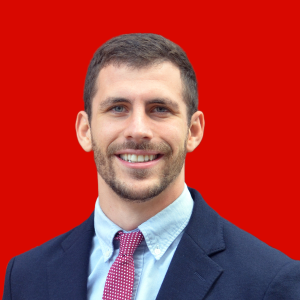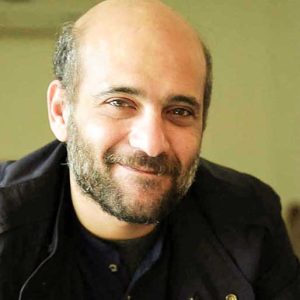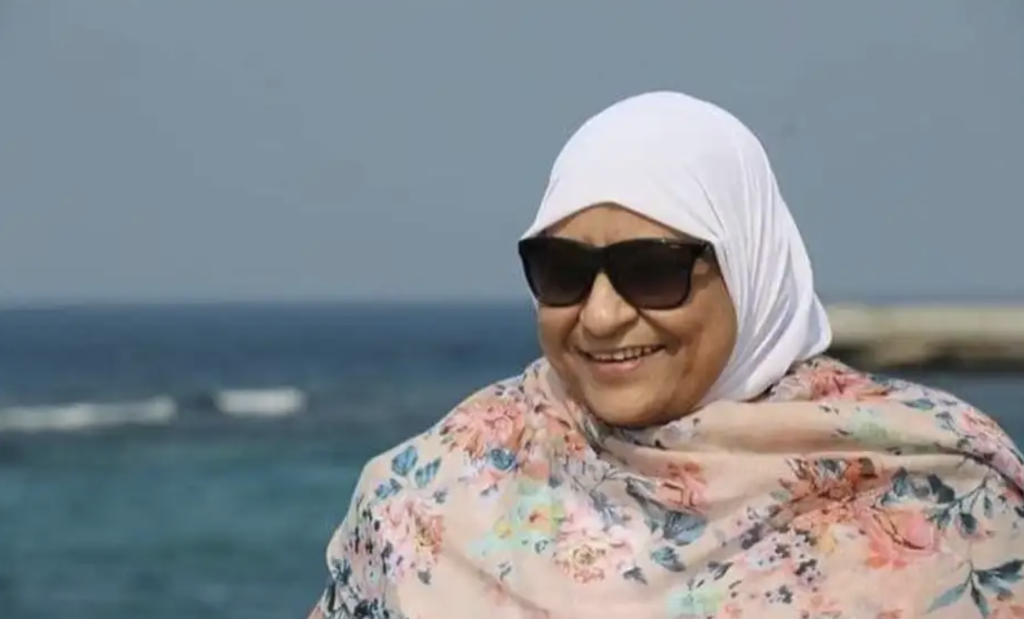When the Egyptian government delegation—possibly led by President Abdel Fattah al-Sisi himself—visits Washington this week for the U.S.-Africa Leaders Summit, they will likely boast about the regime’s supposed progress in improving its abysmal human rights record. In particular, Egyptian officials can be expected to tout, as al-Sisi did at his November meeting with President Joe Biden, the release of a relatively small number of political prisoners in recent months, following domestic and international pressure.
As welcome as these releases are, Egypt’s mass detention crisis continues. Tens of thousands of political prisoners remain locked up in horrific conditions. Arbitrary arrests—including enforced disappearances—are rampant: More political prisoners have been jailed than freed since al-Sisi re-launched the Presidential Pardon Committee in April with great fanfare, with hundreds arrested in the lead-up to Egypt’s November hosting of the COP27 climate conference alone. Detainees continue to die at alarming rates from torture and medical neglect; four such deaths reportedly occurred in the regime’s new and supposedly “improved” Badr 3 Prison just in recent weeks. The rule of law and justice remain elusive for the many victims of state repression, with the powerful security forces continuing to abuse citizens with impunity.
One political prisoner who regained his freedom this year and is using his voice to shine a light on this dark reality of al-Sisi’s “republic of fear” is Egyptian-Palestinian human rights defender Ramy Shaath. Locked up unjustly from July 2019 to January 2022, Shaath was finally released following a global solidarity campaign and is now based in France, where he continues his rights activism. In this Expert Q&A, Shaath speaks with POMED’s Zachary White about what triggered his arrest, the frightening situation inside Egypt’s detention centers, and why he refuses to stop fighting for justice and accountability in Egypt and Palestine.
POMED: Ramy, you are a prominent peaceful activist and human rights defender. Why did the Egyptian regime arrest you?
Ramy Shaath: After the glorious 2011 revolution, Egypt has, since the 2013 coup, turned into a republic of fear. The military regime thinks that the only way to keep control is to suppress people. Thousands of activists, politicians, doctors, and lawyers have been thrown in prison—increasingly arbitrarily—to send a message of fear: Do not oppose us, do not express yourselves in any way.
I am an activist, and I have been a part of the revolution since 2011. In addition, I am a founder and coordinator of the BDS [Boycott, Divest, Sanctions] movement in Egypt. The Egyptian regime aligns itself with the Israeli occupation and believes that calling for freedom and dignity in Palestine are dangerous words in Egypt. I was also a very vocal opponent of the Trump administration’s “deal of the century.” When I was arrested, I was told that my detention was a joint decision by Egypt, Israel, and the United Arab Emirates. My arrest was the fruit of cooperation between dictators and occupation forces.
Did you have any suspicion that your arrest was coming? Or was it out of the blue?
Since 2013, I knew that this would happen eventually. I saw many friends arrested. I didn’t know exactly what would ultimately provoke the authorities: What kind of opposition? Which paper that I wrote, which lecture that I gave would finally lead to my arrest? On June 25, 2019, I went to a conference in Lebanon about opposing the “deal of the century.” When I returned to Egypt, I felt it might be the time. And I was right. Soon after I was back in Cairo, I was arrested.
Can you tell me about the arrest itself?
On July 5, 2019, the “midnight visitors,” as we call them in Cairo, arrived at my home. They came in the night—this is part of their fear tactic—with dozens of armed men and a general. None of them had any identification, none wore uniforms, and none showed me a warrant. They took many things from my home—computers, phones, documents, lots of books—that they never returned or even showed in court. Then they informed my wife that I was being arrested and that she was being deported.
They took us down to this huge line of armored vehicles stretching across the street—this heavy security presence is another tactic they use with peaceful activists in order to send a message to your whole neighborhood, your social networks. They took my wife to the airport and deported her, and they took me, blindfolded and handcuffed, to an undisclosed destination: my first enforced disappearance.
What happened next?
They first brought me to the office of the “security prosecutor”—basically a security officer wearing a prosecutor’s suit. He asked me about my opinion about the 2011 revolution and who I had voted for [in Egypt’s first free elections, in 2012.] I began to grow aggravated and asked him what that had to do with any criminal charge, if I was even being charged at all. He told me they were charging me with being a part of a terrorist organization. I laughed and asked which one, but he said they could not tell me the name.
Then the officer said that they were also charging me with spreading rumors and lies against the state using social media. And I laughed again: People make fun of me because although I am a very well-known activist, I don’t use social media. I don’t even have a Facebook account. So he asked me, “How do you usually talk to people? Where do you talk about politics?” I told him I get interviewed a lot on television. He said, “Okay, we’ll change the charge to spreading lies against the state using television.”
Those 45 minutes were the only questioning I faced during the two and a half years I was detained.
You eventually spent 915 days in prison. What was that time like?
I shared a 250-square-foot room—the size of a small living room—with anywhere from 18 to 32 people at a time. It was suffocating. We had to live, eat, and do everything in this tiny area, 24 hours a day. Our bathroom was a hole in the ground with a cold shower on top of it. The place was run down, with pests everywhere: bed bugs, rats, snakes. Even worse was solitary confinement, where you could be sent for no reason. That cell was too small to lie down in and had no lights or windows, with just a bucket for a toilet. I had a friend who died on the third day of solitary confinement because he couldn’t handle the place.
We had very little medical care. There was a tiny clinic to serve 1,600 prisoners, very little equipment, no medication, and no real doctors. No one was ever hospitalized when they needed it. I saw friends die slowly.
We also had to deal with inhumane and unlawful treatment from the guards. Their actions were always meant to tell us: “We own you, we have no limitations on what we can do. We can torture you, we can kill you without any consequences.” It was a detention camp with every illegal practice—and this is still the reality for sixty thousand political prisoners.
Families suffered too. After traveling for hours, they were made to wait for many hours more, then could have the visitations canceled randomly. They were humiliated in every way and were constantly subjected to different rules: You would arrive one day and be told you could not bring food, or show up the next time and learn that clothing was not allowed.
In September, the Biden administration certified to Congress, as a condition for releasing military aid to Egypt, that prisoners in Egypt are receiving due process. What did “due process” look like for you?
I can tell you about the whole “legal framework” of 10 visits to a prosecutor’s office and 20 visits to a judge where I didn’t see anybody, all to have my detention renewed. When you are brought to court for these detention renewal hearings, nobody hears you. Nobody talks to you. You’re thrown in a cage with thick glass, and you can’t even hear what is happening in the courtroom. You’re not allowed to speak or address your case. And you get renewal after renewal, arbitrary with no meaning. Delegations from the European Union would attend the court hearings, and they saw the farcity of it. It had nothing to do with due process.
Around seven months into my detention, they added me to a new case, and a judge then added me to the state terrorist list without even interrogating me. I learned about it from a newspaper while I was in captivity. My lawyers weren’t informed, and they weren’t even allowed to obtain the documents that supposedly showed I was a terrorist.
And even with the regime’s unconstitutional and unreasonable law allowing the authorities to detain people without trial for two whole years—they violate even that. I was detained for two and a half years without trial, against the law, and saw hundreds of others experience the same.
It is all tactics of terror, tactics of control. People are prevented from traveling, and their assets are frozen. It’s a terror that’s continuing. I’ve seen hundreds of people thrown in prison because police officers stopped them in the street, confiscated their phone and checked their Facebook page, and found a joke or a post they did not like—or sometimes just a “like” for someone else’s post. That was enough to arrest them and put them into prison as a “terrorist.”
Your wife, Céline—who was allowed to visit you only once during your entire nine hundred days detention—spearheaded an international campaign for your release. Did you know about this campaign while you were in prison?
I was getting news every once in a while, especially the bigger updates, such as when they held big demonstrations for me in capitals around the world. I also heard when French President Emmanuel Macron mentioned my name during a press conference with President Abdel Fattah al-Sisi and called for my release, and when lawmakers in the U.S. Congress and European Parliament issued statements about me.
I also received thousands of letters of support from strangers all around the world. Some of them were in different languages, and they weren’t easy for me to read. But the sentiment was very clear: It was support, it was defiance. And those efforts gave me joy, as well as hope that people had not forgotten me and were fighting for my release. And they gave me security: I was less abused, less tortured, because my name was known and spoken, and that scared authorities from abusing me. That eventually led to my release. So yes, the campaign was the decisive factor in my ability to be here today.
Could you talk a little more about the process that led to your release?
The campaign worked gradually: It started with the people and with NGOs, drawing upon documentation showing that my detention was completely arbitrary. Then it moved up to lawmakers and dignitaries around the world, finally pushing their governments to pressure the Egyptian dictator for my release. With all that pressure, I think the Egyptian authorities wanted to get rid of the burden of my detention.
So they blackmailed me into renouncing my Egyptian nationality and kicked me out of the country. It’s an illegal tactic, an illegal deportation. And it was an illegal confiscation of my nationality that I will never accept and will continue fighting against.
When you were released, it was of course a cause for celebration for you and for people around the world. But many of those with whom you were imprisoned are still behind bars, while some have died.
The regime is now claiming to have turned over a new leaf, drawing attention to its “reform” initiatives including the National Strategy for Human Rights, the Presidential Pardon Committee, and the national dialogue. What does this all mean for the thousands of remaining political prisoners in Egypt?
Unfortunately, this regime lies. It only looks at international marketing. It is in a very bad economic place because of its corruption, because of al-Sisi’s bad management of the economy, because of the repression, because the army controls the whole economy. So al-Sisi sees that he needs to remarket himself, and that’s what these public relations tools are for.
We’ve seen the National Strategy for Human Rights—which was designed by the Foreign Ministry, showing that it’s international marketing, not for domestic use.
And since April, when al-Sisi called for a national dialogue and re-launched the Presidential Pardon Committee, we’ve seen more arrests than releases. There are more prisoners than ever in Egypt today! We’ve seen worse conditions in jail, and more deaths in prison due to medical neglect or torture.
And even those few who have been released are still living under the same fear tactics, the same harassment. They are not allowed to work or return to their studies. They’ve been banned from travel and threatened with re-arrest. We’ve even seen one such person, Sherif al-Rouby, re-arrested just for complaining publicly about his life conditions. We know that some others have even been told that after COP27—after al-Sisi’s international charade—they will arrest more.
Despite all this, the Biden administration continues to support al-Sisi and his regime, as well as autocrats across the Middle East and North Africa, all in the name of stability. What would be your message to the U.S. administration?
That there is no stability through repression. There is no stability with poverty. There is no stability by coordinating with dictators.
Things cannot continue like this in Egypt. They will explode and be much more harmful to the long-term U.S. strategy in the region, and it’s going to be much more harmful for the people of the region. The people are suffering, and they blame the United States for its support for these dictators.
We want to see a very different path. During my testimony at the European Parliament in January, one of the parliamentarians told me, “Mr. Shaath, we support you and we feel for you, but Egypt is not the only criminal. There is the Syrian regime, the Iranian regime, the North Korean regime, Russia and China.”
And I said: “Yes—but you’re not supporting, arming, and rolling out the red carpet for these other regimes. You’re not giving legitimacy to them. But you are doing that for al-Sisi’s regime, so you are responsible for his actions, and that gives you a moral and a legal responsibility.” We have to end that support. And the United States has to end this blank check for him and the region’s other dictators before the people can begin to build a better future.
Ramy Shaath is an Egyptian-Palestinian human rights activist who spent 915 days arbitrarily detained in Egypt. He was released in January 2022 on the condition that he renounce his Egyptian citizenship and leave the country.
Zachary White is POMED’s Editorial Associate and the editor of POMED’s Egypt Update newsletter. He is on Twitter @ZacharyBWhite.




